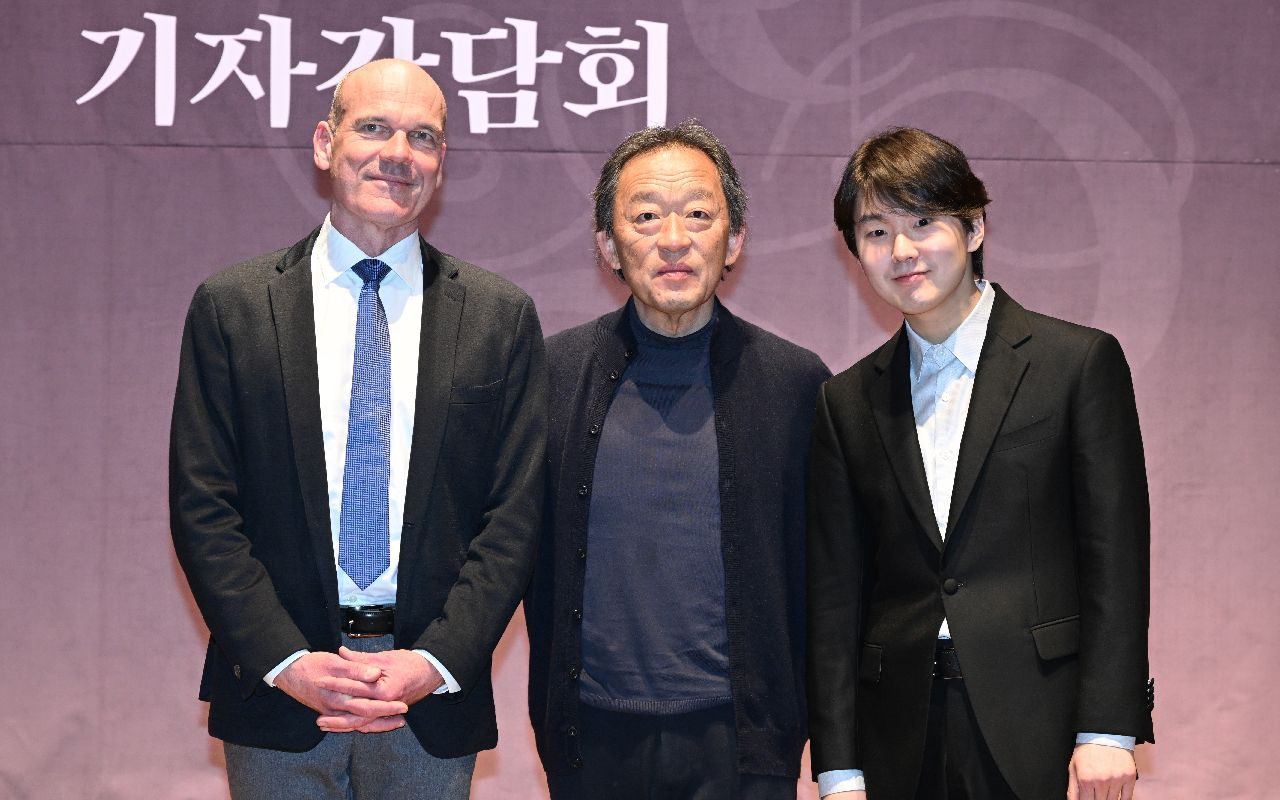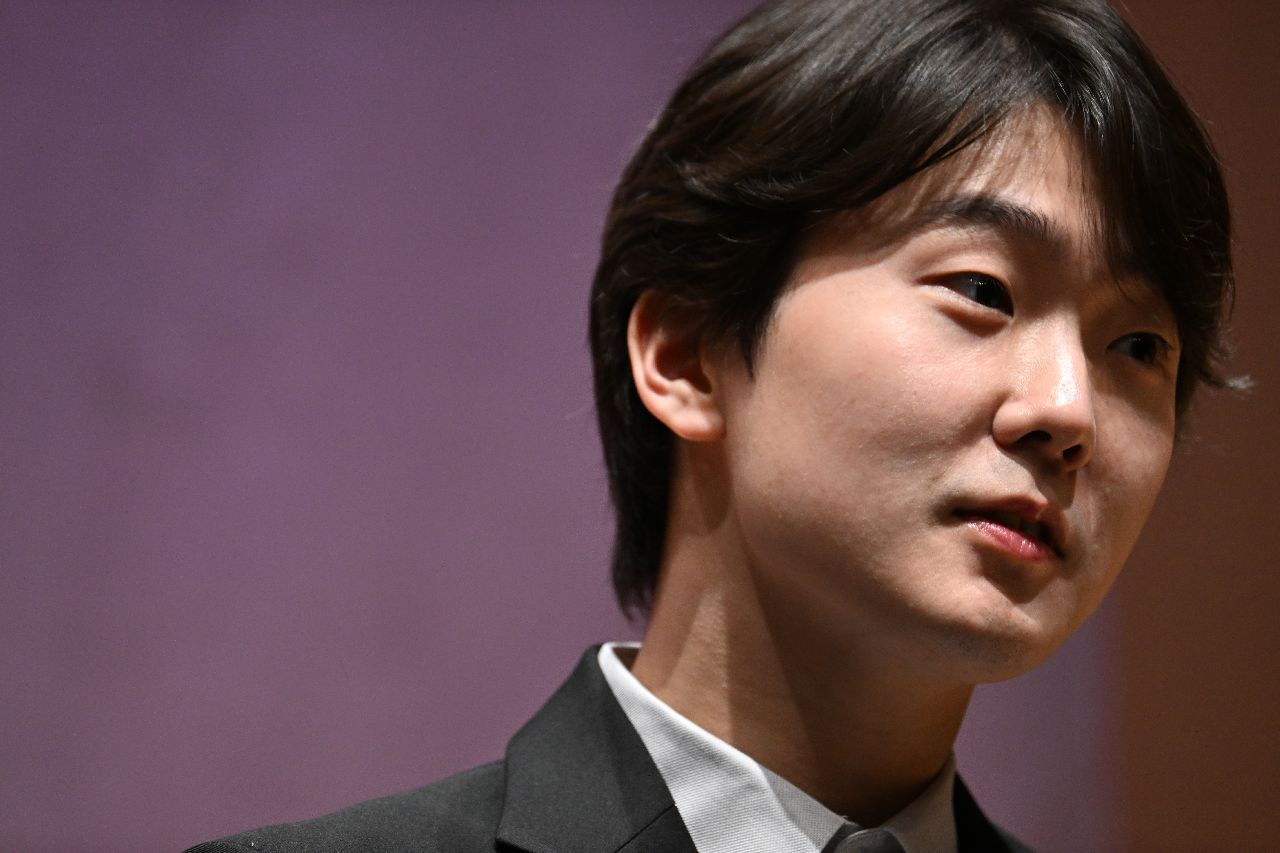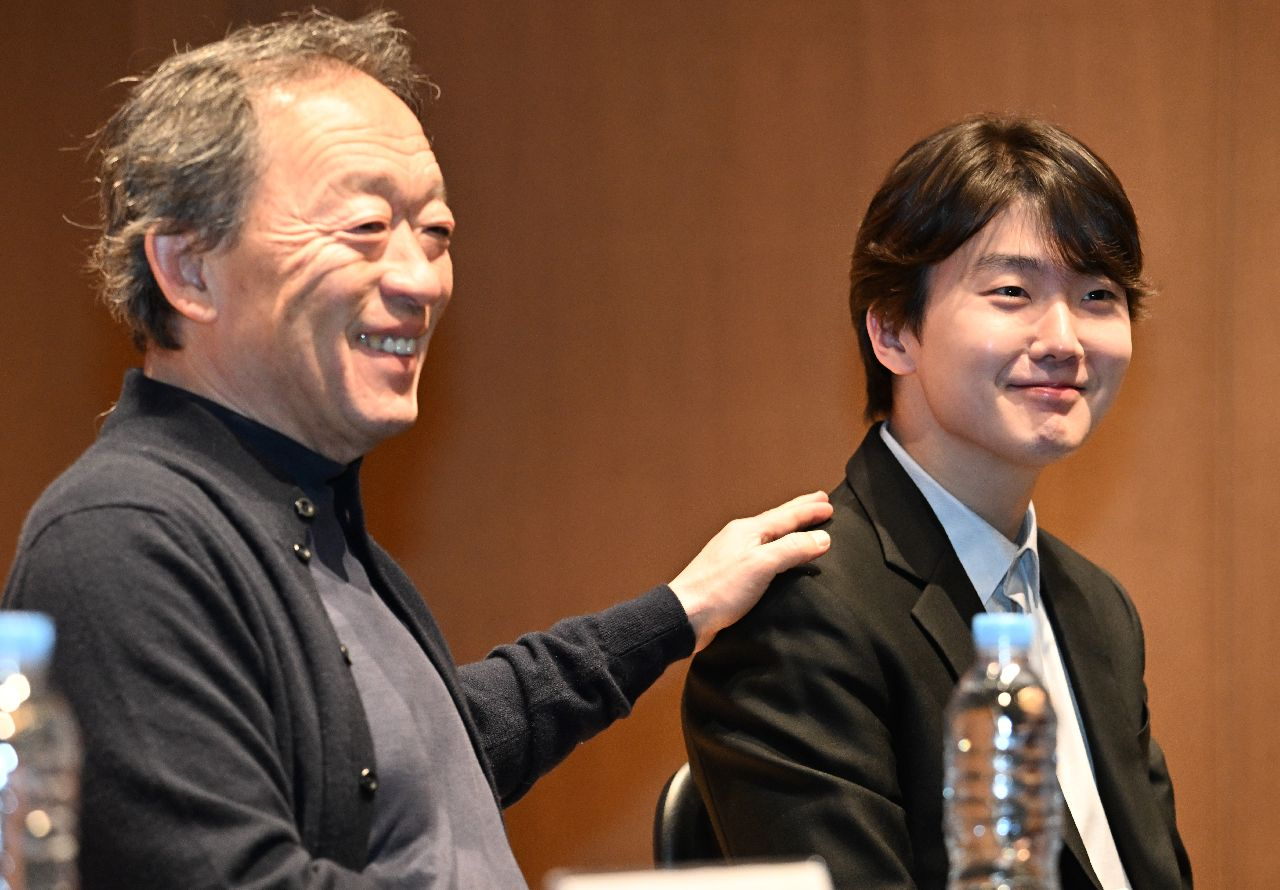 |
German orchestra Staatskapelle Dresden (left), conductor Chung Myung-whun and pianist Cho Seong-jin pose for photos on Thursday at Geoam Art Hall on Thursday. (Im Se-jun/The Korea Herald) |
The Staatskapelle Dresden, one of the world's oldest orchestras, joins forces with celebrated Korean conductor Chung Myung-whun for six performances, four of which will feature Korean pianist Cho Seong-jin, showcasing the enduring relationship between the passage of time and musical excellence.
The 475-year-old orchestra, founded as a royal court ensemble in 1548, has worked with many renowned conductors, as well as internationally celebrated instrumentalists and composers. Previous directors for Staatskapelle Dresden include Heinrich Schutz, Johann Adolf Hasse, Carl Maria von Weber and Richard Wagner, while distinguished composers such as Strauss and Brahms have written works either dedicated to the orchestra or first performed in Dresden.
Wagner named the Staatskapelle Dresden a “wondrous harp” while Austrian conductor Herbert von Karajan likened its sound to a “shine of ancient gold.”
While the repertoires of the two different programs will present the thick sound of the centuries-old orchestra and its history with great musicians, it is also a celebration of the orchestra's long lasting relationship with Chung that goes back to the early 2000s.
Chung, who is turning 70 this year, first met with the orchestra in 2001. In 2012, he was the first principal guest conductor for Staatskapelle.
“I’ve spent 20 years with them and got to know them better ... we've become closer and it makes working with them easier,” Chung told reporters on Thursday. When asked about his relationship with the orchestra, Chung said the time they spent together has made them more complete.
“Even if you try so hard, the passage of time is necessary to become really great,” he said.
Another advantage of time, the conductor added, is his understanding of the pieces he conducts, like Brahms concertos.
“When I played Brahms’ Concerto No. 4 some 20 years after the first performance, I felt like I understood the piece a little better and could make a better sound. It was when I turned 50 years old, which was about the year Brahms wrote the piece,” he said. “Of course, there is a huge difference between me and a master like him but as a person who lived that long, I felt like there was something I could understand.”
 |
Cho Seong-jin pose for photos on Thursday at Geoam Art Hall on Thursday. (Im Se-jun/The Korea Herald) |
Out of the six upcoming performances, four will showcase one of the most sought-after Korean pianists, Cho Seong-jin, who has a longstanding history with Chung dating back to 2009 when Cho was just 13 years old. Chung fondly recalled being taken aback by Cho's artistic and musical maturity at such a young age, leading to a close collaboration between the two for concertos over the years. Chung added that he is pleased by the success of Korean classical musicians like Cho.
"The development of Korean classical music is just beginning. In a society where everything changes rapidly, classical music, which gains deeper meaning over time, is a necessary presence in our society," Chung said.
When asked about his experience with Tchaikovsky's concerto, the pianist said that he has performed it many times before, but the fast-paced nature of the piece can create immense pressure. However, Cho emphasizes that he strives to focus on the essence of the music rather than aiming for a flawless performance.
The latest tour is the German orchestra’s seventh visit to Korea after their first in 1995. The six-performance-tour is exclusively for Korea in part to celebrate Chung's 70th birthday, said Adrian Jones, CEO of the orchestra, adding that the orchestra will return to Asia later this year.
On Sunday, the orchestra will perform Tchaikovsky’s Piano Concerto No. 1, Op. 23, Schubert Symphony No. 8 “Unfinished,” D. 759 and Overture to “Der Freischutz,” by Weber, who was serving the orchestra’s artistic director when he composed the opera in 1821.
The orchestra will bring the same Tchaikovsky-Schubert-Weber program to Sejong Center in Sejong on Thursday, to Lotte Concert Hall in southern Seoul on Friday and to Art Center Incheon on Saturday.
On Tuesday and Wednesday at the Seoul Arts Center, the orchestra will perform four Brahms symphonies -- Brahms Symphony No. 1, Op. 68 and Symphony No. 2, Op. 73 on the first day and Symphony No. 3, Op. 90 and Symphony No. 4, Op. 98 on the second day.
 |
Conductor Chung Myung-whun (left) and pianist Cho Seong-jin talk during a press conference on Thursday at Geoam Art Hall on Thursday. (Im Se-jun/The Korea Herald) |






![[Today’s K-pop] Blackpink’s Jennie, Lisa invited to Coachella as solo acts](http://res.heraldm.com/phpwas/restmb_idxmake.php?idx=644&simg=/content/image/2024/11/21/20241121050099_0.jpg)
